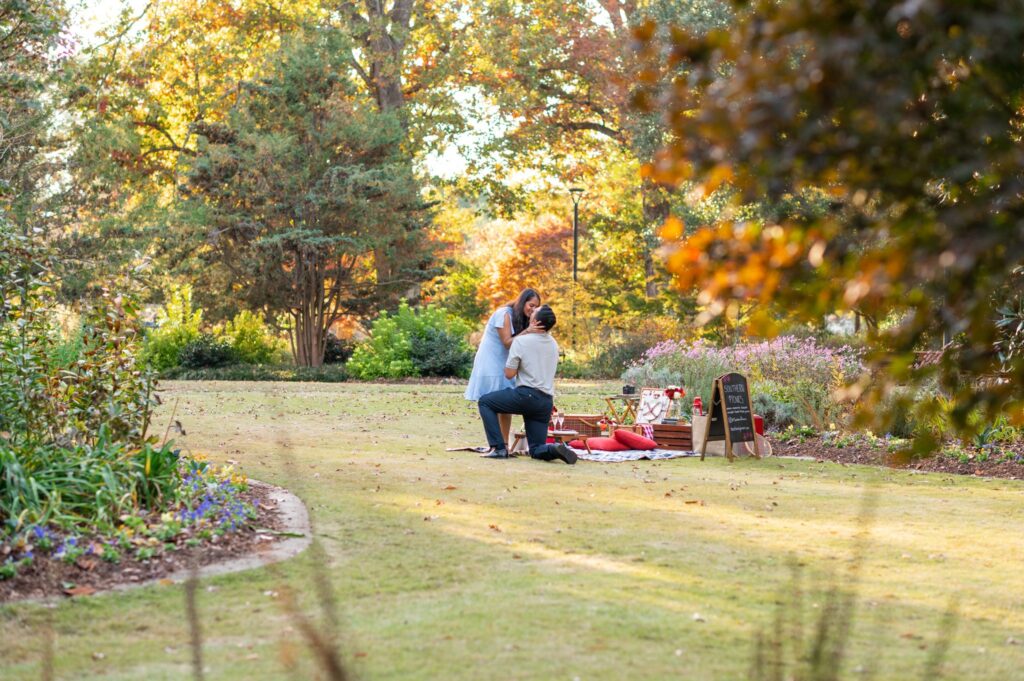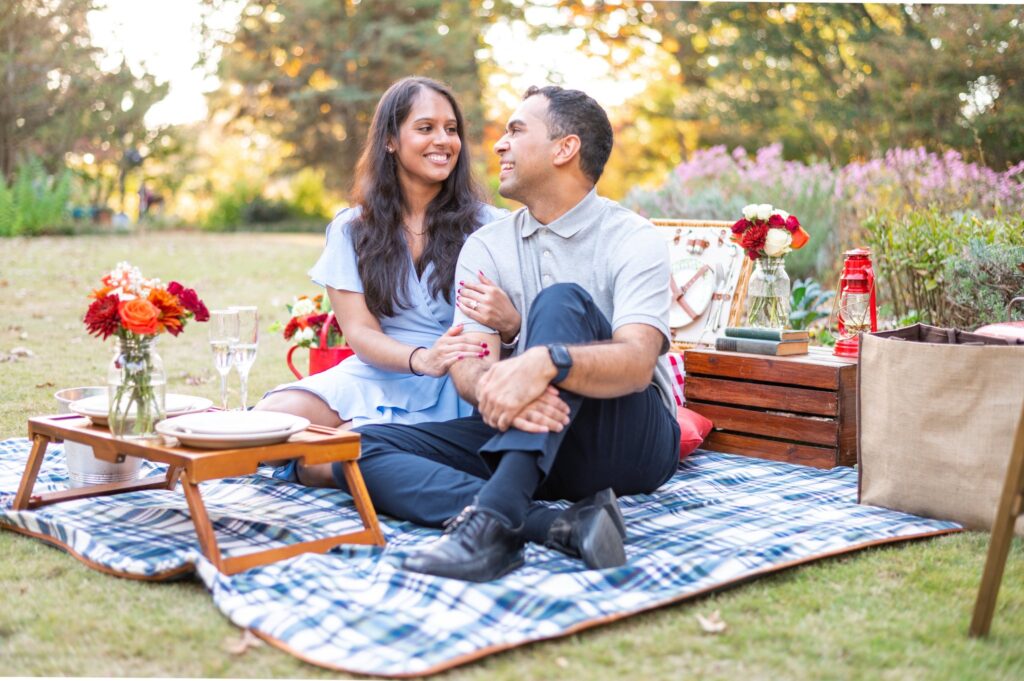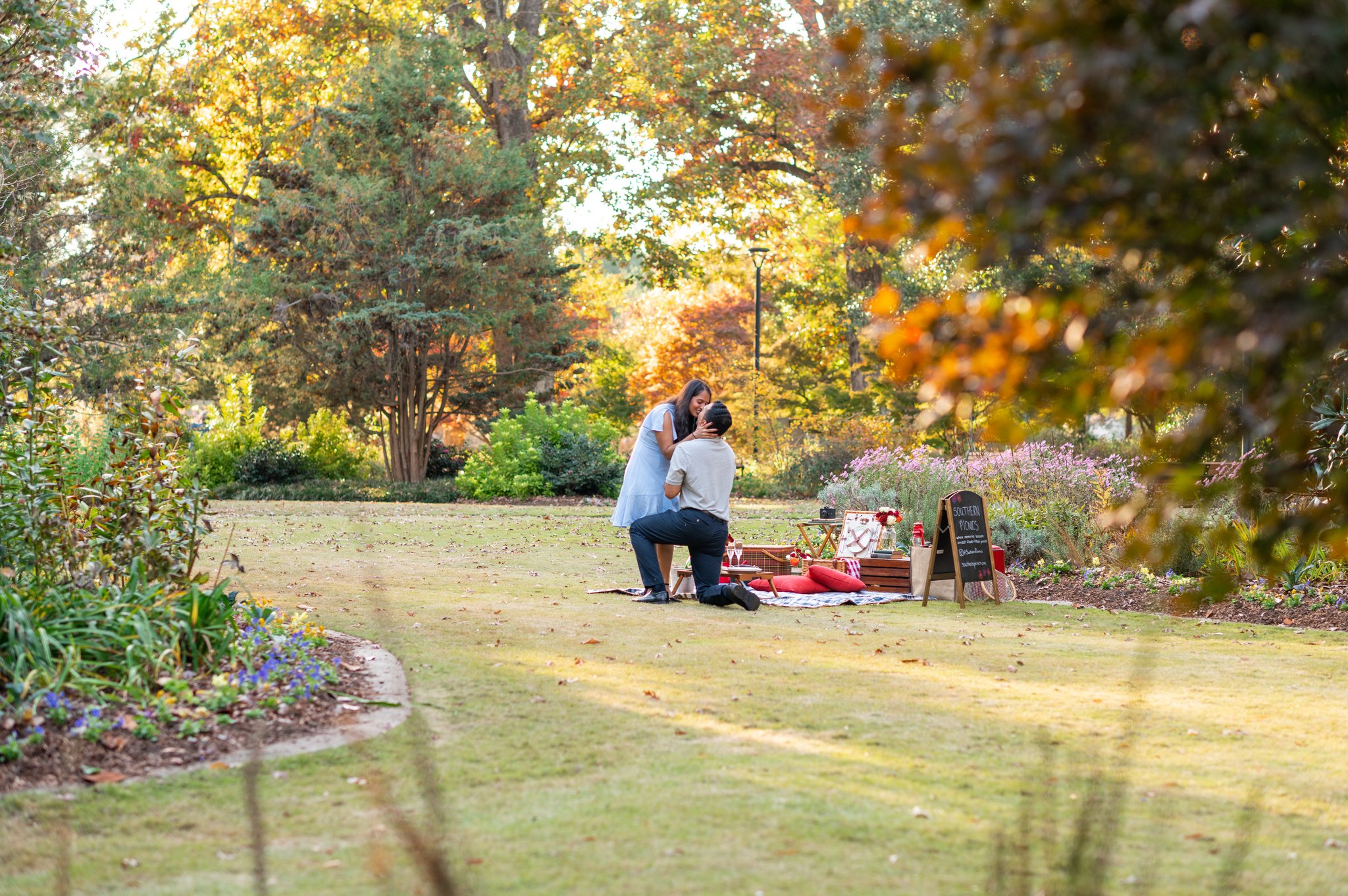Share this post
AUTHOR:
How to Plan a Wedding
January 11, 2024
Congratulations on your engagement! As you embark on this exciting journey towards forever, there are numerous decisions to make and details to consider. Planning a wedding can be both thrilling and overwhelming, but fear not! We’ve compiled a comprehensive step 1 guide to help you navigate the initial stages of your wedding planning process.

1. Choose a Date:
Selecting the perfect date for your wedding is a pivotal decision that involves a careful blend of sentimentality and practicality. Begin by reflecting on significant dates in your relationship – the day you met, your first date, or the anniversary of when you got engaged. Choosing a date with personal meaning can add an extra layer of significance to your wedding celebration.
Consider external factors such as the season, weather, and any special events or holidays around your chosen date. Some couples opt for a springtime garden wedding, while others dream of a winter wonderland ceremony. Weather conditions can significantly impact your wedding, so it’s crucial to choose a date that aligns with your vision for the day.
Keep in mind the availability of key guests, especially those traveling from out of town. While it’s impossible to accommodate everyone’s schedule, being mindful of potential conflicts can help ensure that your closest friends and family can be present to celebrate with you.
Additionally, flexibility is a valuable asset when choosing a date. If you have your heart set on a particular venue or vendor, be open to adjusting your date slightly to secure their availability. Remember, the goal is to create a day that is meaningful and memorable for both of you.
2. Set a Budget:
As you embark on the journey of planning your dream wedding, setting a realistic budget is a crucial step that requires careful consideration and open communication. Begin by having an honest conversation about your financial situation and expectations for the wedding.
Consider your priorities as a couple. Are you willing to invest more in a stunning venue, or do you prefer to allocate a significant portion of your budget to exquisite catering and entertainment? Understanding your shared priorities will help you make informed decisions as you allocate funds.
In addition to the more obvious expenses, don’t forget to account for miscellaneous costs that can quickly add up. This may include transportation, invitations, decorations, and unexpected expenses that may arise as you navigate the planning process.
Once you have a preliminary budget in mind, leave room for flexibility. Unexpected costs will arise, and having a buffer will help you navigate any unforeseen challenges without compromising the overall vision for your wedding day.
Consider creating a spreadsheet or using a budgeting tool to track your expenses and stay organized. This will allow you to monitor your spending and make adjustments as needed throughout the planning process.
Remember, setting a budget is not only a financial exercise but also an opportunity for both of you to align your expectations and work together towards creating a celebration that reflects your values and priorities.
3. Choose Your Bridal Party:
Selecting your bridal party is a joyous and deeply personal aspect of wedding planning. These are the individuals who will stand by your side, offering support and sharing in the excitement of your special day. Start by considering the people who have played significant roles in your lives and who you can envision being part of your wedding journey.
Traditionally, bridesmaids and groomsmen are chosen, but feel free to redefine these roles to suit your unique circumstances. You may choose to include close friends, siblings, or even family members who hold a special place in your hearts. Remember, there are no strict rules when it comes to assembling your bridal party – it’s about surrounding yourselves with those who bring joy and positivity to your celebration.
Once you’ve chosen your bridal party, take the time to communicate your expectations and express your gratitude for their involvement. Clearly outline their roles and responsibilities, whether it’s attending fittings, helping with pre-wedding events, or providing emotional support.
Consider hosting a small gathering or dinner to officially ask your chosen individuals to be part of your bridal party. This can be a meaningful and intimate way to share your excitement and begin the journey towards your wedding day together.
Embrace the diversity and uniqueness of your bridal party, and remember that their presence is a reflection of the meaningful connections you’ve built throughout your lives. Cherish the moments you’ll share leading up to the wedding and on the big day itself.
4. Make a Guest List:
Creating a guest list may initially seem like a daunting task, but it is an essential aspect of wedding planning that requires thoughtful consideration. Start by drafting a preliminary list that includes close family members and friends. Once you have a rough estimate of the number of guests, you can begin refining your list based on your budget and venue capacity.
Consider the atmosphere you want to create at your wedding. Are you envisioning an intimate gathering with your closest friends and family, or a larger celebration with a more extensive guest list? The size of your guest list will impact various aspects of your wedding, from the choice of venue to catering and seating arrangements.
Be prepared for potential challenges when finalizing your guest list, as differing opinions and expectations can arise. Open communication with your partner is key during this process. Be willing to compromise and find solutions that work for both of you, ensuring that the final guest list is a reflection of the shared connections and relationships that matter most.
It’s important to be realistic about the number of guests you can comfortably accommodate within your budget and chosen venue. Remember, a more intimate celebration allows for deeper connections and meaningful interactions with each guest.
Once you have a finalized guest list, consider sending out save-the-date cards well in advance, especially if you’re planning a destination wedding or have guests traveling from afar. This will give your loved ones ample time to make arrangements to be present on your special day.
5. Choose Your Venue:
Selecting the perfect venue for your wedding is a pivotal decision that will set the tone for your entire celebration. With your chosen date, budget, and guest list in mind, embark on the exciting journey of exploring potential venues.
Consider the style and atmosphere you envision for your wedding. Do you dream of exchanging vows in a romantic garden setting, a rustic barn, a sophisticated ballroom, or perhaps on a picturesque beach? The possibilities are endless, and finding a venue that resonates with your vision is key.
Start by researching venues that align with your preferences. Visit multiple locations to get a feel for their ambiance, amenities, and overall vibe. Pay attention to details such as available space, seating capacity, and any restrictions or requirements imposed by the venue.
Keep in mind the logistical aspects of your chosen venue. Is it easily accessible for your guests, and does it provide the services and facilities you require? Ask about any additional costs, such as catering or rental fees, to ensure that the venue fits comfortably within your budget.
Once you’ve found the perfect venue, it’s time to secure your date. Popular venues can book up quickly, so don’t hesitate to put down a deposit to ensure that your preferred location is reserved for your special day. Review the contract thoroughly, and if you have any questions or concerns, discuss them with the venue coordinator before finalizing the agreement.
Choosing the right venue is a significant milestone in your wedding planning journey, and it’s worth taking the time to find a location that not only meets your practical needs but also resonates with the unique vision you have for your celebration.
6. Hire a Photographer:
Your wedding day is a collection of precious moments that will become cherished memories for a lifetime. Capturing these moments with the skill and artistry of a professional photographer is a must. Begin your search for the perfect photographer early in the planning process to secure the services of a talented professional.
Start by researching photographers in your area and reviewing their portfolios. Each photographer has a unique style, so find one whose work resonates with you!
In conclusion, the early stages of wedding planning involve critical decisions that will shape your special day. Choosing a date, setting a budget, selecting your bridal party, making a guest list, choosing your venue, and hiring a photographer are all integral components of the planning process. By tackling these aspects early on, you’ll lay a solid foundation for a seamless and memorable wedding celebration.
Remember, this is just the beginning of your wedding journey, and it’s essential to approach the process with open communication, flexibility, and a sense of adventure. Enjoy every moment, and may your wedding day be the beautiful beginning of a lifetime filled with love and joy.


Comments